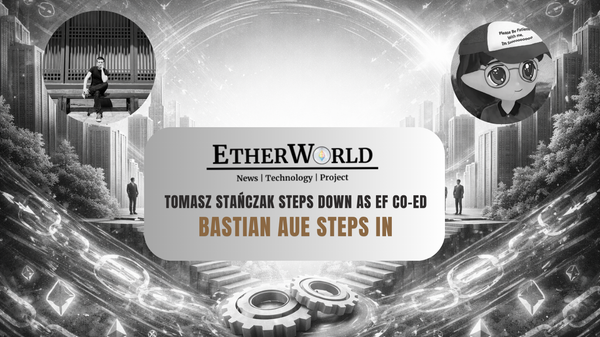Ethereum’s transaction model is undergoing significant scrutiny as developers look to improve security, authorization, & transaction validation. A recent developer discussion highlighted the challenges surrounding multiple signatures, authority verification, & JSON-RPC standardization.
In this blogpost, we’ll break down the current issues, the proposed solutions, & how they might impact Ethereum’s future.
Problem in Ethereum Transaction Signatures
Ethereum transactions rely on digital signatures to authenticate senders. However, with the increasing adoption of multi-signature wallets, smart contract wallets, & Layer 2 solutions, new challenges are emerging:
- Lack of Standardization: Different Ethereum clients (such as Besu, Nethermind, & Geth) handle transaction authorization in varying ways. This inconsistency makes cross-client compatibility difficult.
- Multi-Signature Complexity: Transactions may include multiple signers, but Ethereum’s current EVM validation process doesn’t easily support checking multiple signatures at once.
- Authority Verification Issues: In some cases, transactions need an additional level of authority beyond a simple signature check. Developers want to introduce a new mechanism that allows passing authority in transactions.
Current Solutions & Their Limitations
Ethereum developers have discussed several approaches to improve the transaction signature process.
- JSON-RPC Improvements for Authorization: The Ethereum JSON-RPC API currently lacks a direct mechanism to pass authority for transactions. A proposal has been introduced to address this by adding an "authority" field to JSON-RPC calls such as
eth_simulateð_call. This approach would allow transactions to either include a direct signature or an authority declaration, such as an address, to verify transactions.
The main challenge lies in standardizing this feature across all Ethereum clients while ensuring security remains intact.
- Mixed Authority Lists (Address vs. Signature): One proposed approach enables transactions to incorporate both address-based authority & signature-based verification. Transactions could pass a list containing either just an address (representing a trusted sender), just a signature (providing cryptographic proof), or a combination of both.
The key challenge is determining how Ethereum clients should handle scenarios where an authority & a signature contradict each other—whether one should take precedence or if an error should be thrown.
- Simulating & Validating Transactions with Authority Fields: Developers want a way to simulate Ethereum transactions before execution, but the challenge lies in Ethereum’s current EVM validation system, which lacks a straightforward method to dynamically verify an authority field. Potential solutions include introducing new opcodes or modifying how JSON-RPC retrieves authority information.
The primary challenge is ensuring that these simulations accurately reflect real execution behavior, allowing developers to test transactions effectively before deployment.
What This Means for Ethereum’s Future?
If these changes are implemented, Ethereum could benefit from several key improvements. Multi-signature support would become more flexible, allowing transaction authorization without complex workarounds. Standardized JSON-RPC calls would provide a unified approach to transaction authorization, enhancing cross-compatibility across clients.
Security & efficiency would improve by reducing reliance on ad-hoc signature checks & establishing a clearer validation model. Additionally, authority-based checks could enhance smart contract interactions, particularly for smart contract wallets & Layer 2 solutions.
However, these solutions will require broad consensus from Ethereum’s core developers & client teams. The integration process will take time, testing, & careful implementation.
Developers are pushing for a more flexible, secure, & standardized system that could improve how Ethereum transactions are authorized across all clients.
References: Eth Simulate Feb 10, 2025
Related Articles
- Ethereum’s Institutional & Government Adoption
- Solving the Puzzle of Duplicate Blocks in Ethereum
- Gas Estimation is About to Get Easier on Ethereum
- The Debate Over Freezing Ethereum's Core for Good
- Fixing Ethereum’s Message Signing Chaos
Disclaimer: The information contained in this website is for general informational purposes only. The content provided on this website, including articles, blog posts, opinions, and analysis related to blockchain technology and cryptocurrencies, is not intended as financial or investment advice. The website and its content should not be relied upon for making financial decisions. Read full disclaimer and privacy Policy.
For Press Releases, project updates and guest posts publishing with us, email to contact@etherworld.co.
Subscribe to EtherWorld YouTube channel for ELI5 content.
Share if you like the content. Donate at avarch.eth or Gitcoin
You've something to share with the blockchain community, join us on Discord!








